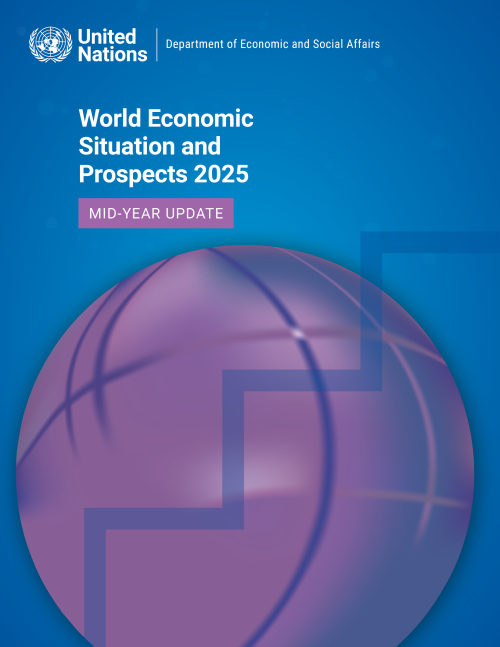
The world economy is at a precarious moment. Heightened trade tensions, along with policy uncertainty, have significantly weakened the global economic outlook for 2025. Higher tariffs—resulting in a significant increase in the effective tariff rate in the United States of America—are likely to strain global supply chains, drive up production costs and delay critical investment decisions, while also contributing to financial market volatility. Global economic growth is now projected to slow to 2.4 per cent in 2025, down from 2.9 per cent in 2024, and 0.4 percentage points below the January forecast. The downward revisions in growth forecasts are broad-based, affecting both developed and…
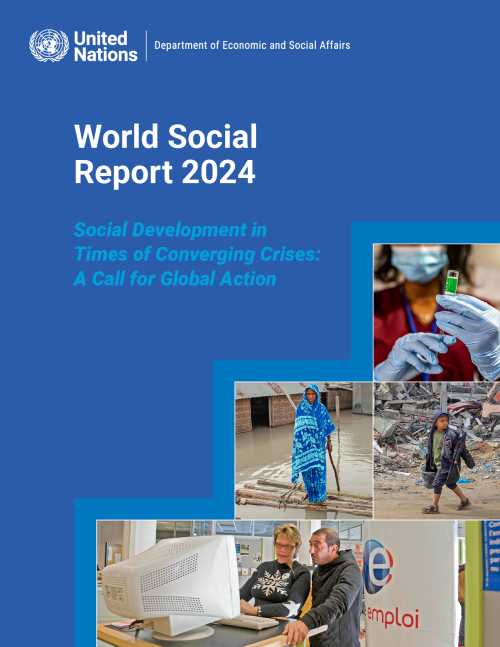
According to the World Social Report 2024, urgent global action is needed to support national efforts to address the setbacks caused by the recent global crises, and to avoid the conversion of future shocks to crises.
Titled “Social Development in Times of Converging Crises: A Call for Global Action”, the World Social Report 2024 explains that, in our current global policy environment, shocks more readily turn into crises that cross boundaries, demanding international action. Particularly as such crises disproportionately impact the most vulnerable people, societies and countries.
Crisis-driven setbacks in poverty reduction and unemployment
Successive shocks,…
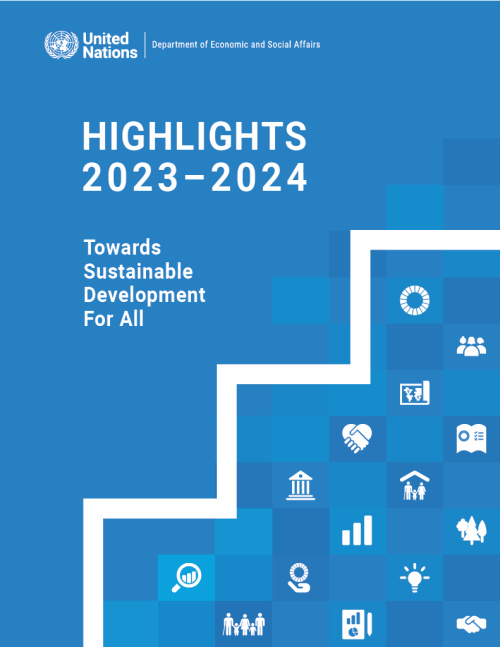
The UN DESA Annual Highlights report is a tool to communicate the contributions of the Department to the realization of internationally agreed development goals and shared social, economic, and environmental aspirations. It showcases the Department’s role in gauging trends, building capacities, and shaping solutions. UN DESA Highlights 2023–2024 covers activities over the period of the 78th Session of the General Assembly (September 2023 – August 2024) and reflects the Department’s response to the set priorities and expressed needs of Member States. Seven (7) thematic chapters showcase how UN DESA put its expertise to the task of supporting Member State efforts to implement the 2030…
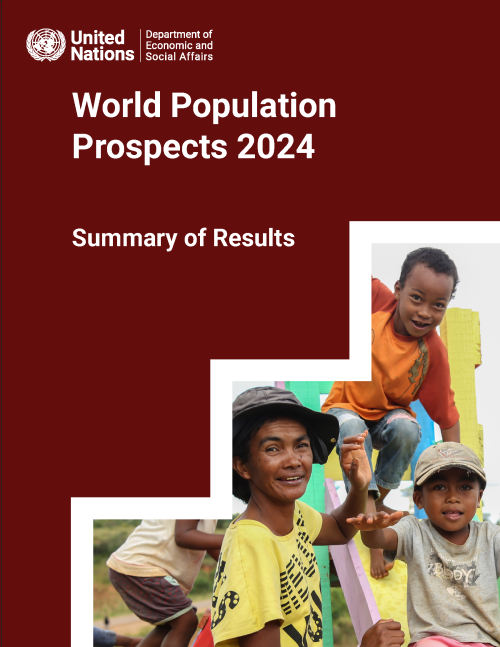
World Population Prospects 2024: Summary of Results adopts the analytical framework of the demographic transition—the historic shift towards longer lives and smaller families—approximated here by the timing at which populations peak in size, to explore differences in population trends that characterise countries and regions today and provide insight into their future trajectories. The report also offers policy recommendations to prepare countries for a population size, age structure and spatial distribution that may differ appreciably from that of their recent past.
World Population Prospects 2024 is the twenty-eighth edition of the official United Nations population…
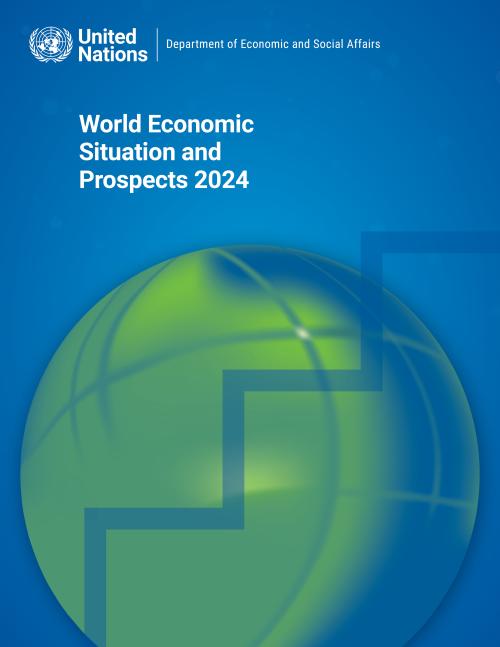
Global economic growth is projected to slow from an estimated 2.7 per cent in 2023 to 2.4 per cent in 2024, trending below the pre-pandemic growth rate of 3.0 per cent, according to the United Nations World Economic Situation and Prospects (WESP) 2024. This latest forecast comes on the heels of global economic performance exceeding expectations in 2023. However, last year’s stronger-than-expected GDP growth masked short-term risks and structural vulnerabilities.
The UN’s flagship economic report presents a sombre economic outlook for the near term. Persistently high interest rates, further escalation of conflicts, sluggish international trade, and increasing climate…
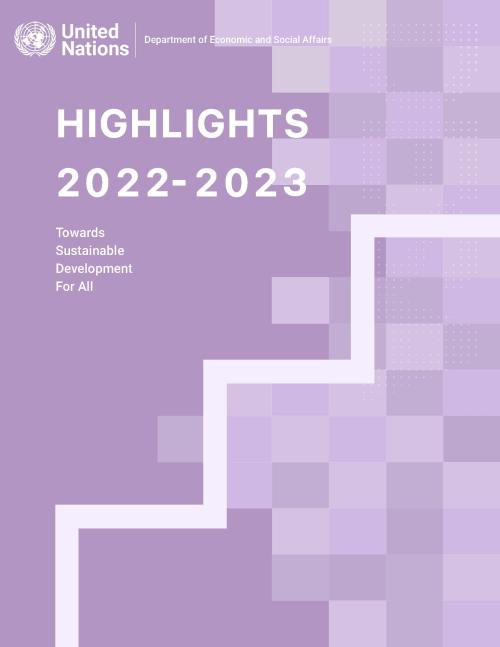
The UN DESA Annual Highlights report is a tool to communicate the contributions of the Department to the realization of internationally agreed development goals and shared social, economic, and environmental aspirations. It showcases the Department’s role in gauging trends, building capacities, and shaping solutions. UN DESA Highlights 2022-2023 covers activities over the period of the 77th Session of the General Assembly (September 2022 – August 2023) and reflects the Department’s response to the set priorities and expressed needs of Member States. Seven (7) thematic chapters showcase how UN DESA put its expertise to the task of supporting Member State efforts to implement the 2030…
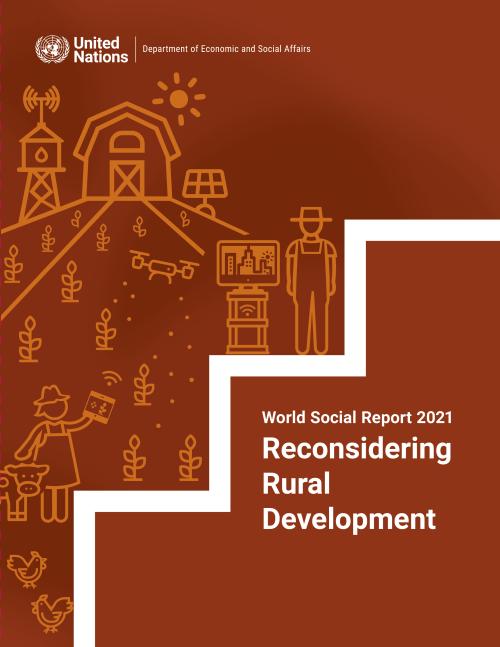
New approaches made possible through improved access and Internet connectivity can raise the standard of living for approximately 3.4 billion people living in rural areas, without them having to migrate to cities, according to the newly released 2021 World Social Report “Reconsidering Rural Development.”
The COVID-19 pandemic, together with already persistent high levels of poverty and inequalities, are threatening to stall progress for the world’s rural populations. But the pandemic has also proven that new technologies can enable rural populations to flourish, ending the rural-urban divide.
UN Secretary-General António Guterres said the new technologies opened up new…
COVID-19 has disrupted all forms of human mobility through the closing of national borders and halting of travel worldwide. Preliminary estimates suggest that the pandemic may have slowed the growth in the stock of international migrants by around two million by mid-2020, 27 per cent less than the growth expected since mid-2019, according to a report by the United Nations released today.
Growth in the number of international migrants has been robust over the last two decades, reaching 281 million people living outside their country of origin in 2020, up from 173 million in 2000 and 221 million in 2010. Currently, international migrants represent about 3.6 per cent of…
The new report examines five megatrends: climate change; demographic shifts, particularly population ageing; urbanization; the emergence of digital technologies; and inequalities –that are affecting economic, social and environmental outcomes. Efforts to reverse or redirect these trends must be reinforced to ensure that we achieve the full measure of the 2030 Agenda, and set the stage for an inclusive, sustainable and equitable future during the next 75 years.
All trends are the result of human activity, and as such, they can be shaped by human decisions and policy choices. By making the right choices today, without further delay, it is not too late to shape the major trends of…
The world’s population is expected to increase by 2 billion persons in the next 30 years, from 7.7 billion currently to 9.7 billion in 2050, according to a new United Nations report launched today.
The World Population Prospects 2019: Highlights, which is published by the Population Division of the UN Department of Economic and Social Affairs, provides a comprehensive overview of global demographic patterns and prospects. The study concluded that the world’s population could reach its peak around the end of the current century, at a level of nearly 11 billion.
The report also confirmed that the world’s population is growing older due to increasing life expectancy and…
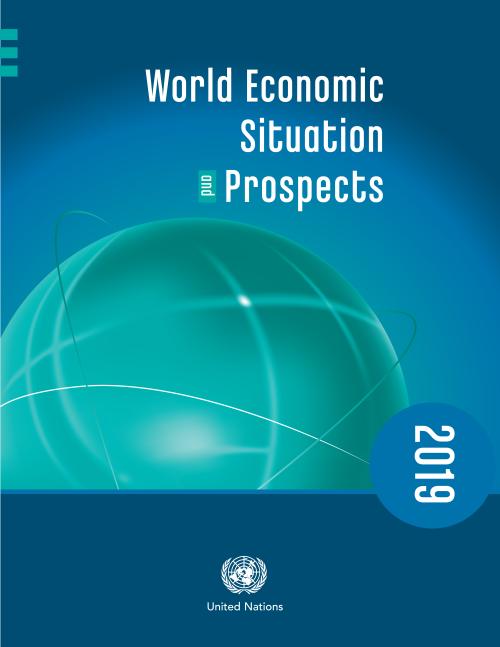
The global economy will continue to grow at a steady pace of around 3 per cent in 2019 and 2020 amid signs that global growth has peaked. However, a worrisome combination of development challenges could further undermine growth, according to the United Nations World Economic Situation and Prospects (WESP) 2019.
UN Secretary-General António Guterres cautioned “While global economic indicators remain largely favourable, they do not tell the whole story.” He said the World Economic Situation and Prospects 2019 “raises concerns over the sustainability of global economic growth in the face of rising financial, social and environmental challenges.”
Global growth is expected to…
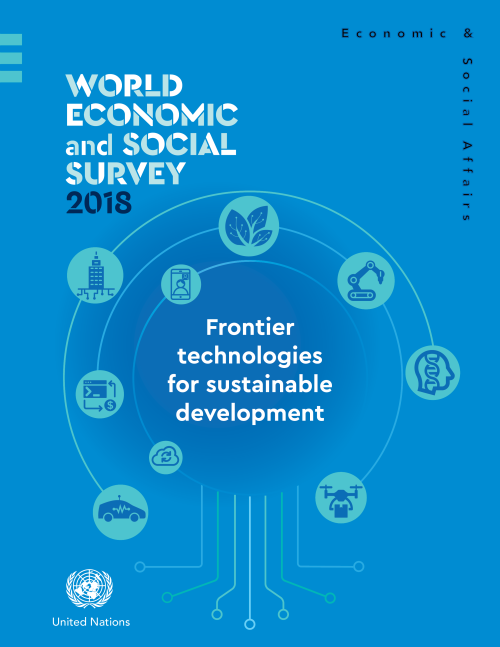
New frontier technologies — everything from renewable energy technologies to biodegradable plastics, artificial intelligence and electric vehicles — hold immense potential to improve people’s lives and significantly accelerate efforts to achieve the Sustainable Development Goals and address climate change. But without appropriate policies, they can also drive greater inequality and increase social dislocations.
The World Economic and Social Survey 2018 produced by UN DESA found that renewable energy technologies and efficient energy storage systems are already enhancing environmental sustainability, allowing countries to “leapfrog” over existing technological solutions. New…
 Welcome to the United Nations
Welcome to the United Nations